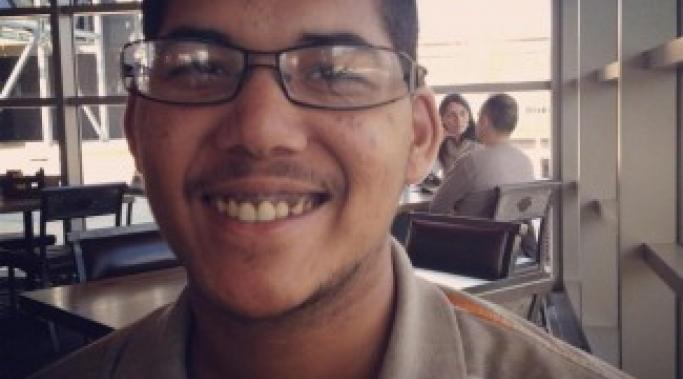Tim has announced that when he turns 21 next summer he wants to move out. I can’t begin to explain all the ways that frightens me. Except for this past February when he knew he needed a few days inpatient, Tim has been stable for just over a year. I never, ever thought we would get to this place. He even spent two straight weeks alone with my parents in July, helping them with chores around the house and playing miniature golf. He hasn’t been able to do that since he was nine. Moving out means Tim will have to be responsible for all the things he doesn't realize he relies on us for, and for all the things he is responsible for now, but I remind him about almost daily. We can teach him these things, yes. But what we can’t teach him scares me more, namely, how to keep him safe out in a world that may automatically assume he’s dangerous, and may be dangerous to him because he trusts too much.
Mental Illness in the Family
Two things happened last month that stirred me to revisit an often-examined question:
Am I too involved in my adult son's life (Ben has schizophrenia.)? Have I "stolen his manhood and his rights" by insisting on treatment for his schizophrenia?
One reminder came in the form of a reader's book review on Amazon.com for Ben Behind His Voices, calling it a "Testament to Abuse of Power and Parental Authority," the only one-star review in a sea of 5-star praise and gratitude. Clearly, a man with an agenda, so I didn't take it too personally, but this is not the first time I've been called an over-involved parent. On the other hand, I've also been criticized by others for not "stopping" Ben from dropping out of high school, for "allowing" my son a period of homelessness in Idaho and "letting him fail" when he gained and then lost five different jobs after he returned.
If our story of schizophrenia hitting a family were made into a movie, here is where it might end: on the hopeful note of some dreams having come true, after challenges and crises too numerous to count. My adult son, Ben, is stable, taking his medication, able to participate in family functions, and actually working part-time as - of all things - a server in a restaurant where customers come in and ask to be seated in his section.
I was on the Diane Rehm Show on NPR last week, discussing Congressman Murphy’s “Helping Families in Mental Health Crisis Act,” Bill HR 3717, along with Congressman Murphy and Dr. Fuller Torrey of the Treatment Advocacy Center. I was booked as the opponent of the bill, which isn’t quite accurate. There are many parts of the bill I think are valuable.
Two weeks ago, I went back on antidepressants. I say "back" because I took them during a protracted period of depression several years ago, but weaned myself off of them after about six months because I didn’t think they were doing much for me. But two weeks ago, after weeks of urging by my husband and a close friend, I went back to my psychiatrist and he felt I should try an antidepressant. I am beginning to feel better, I must admit, and if I’m being honest with myself, I white-knuckled it through the winter and early spring, knowing I was in depression, and refusing to do anything about it other than hide and eat (food is my self-medication of choice). But I felt defeated, walking into the doctor’s office, as if I was a failure. So after putting on 25 pounds and crying every day for a month, I gave in and got myself some help.
Last Tuesday I called Tom, my husband of nearly 24 years and our family’s stay-at-home parent, and asked him to pick me up some bandages for a blister on my heel at the pharmacy. He groaned at me. “Sure,” was his reply in a half whine, half frustrated tone. “I haven’t been to the pharmacy in what, 12 hours. They’re probably wondering what’s happened to me.”
Tom continued his rant, telling me he feels like Norm from Cheers when he walks into the building, and he swears the pharmacist knows our phone number by heart. I thought he was exaggerating until Friday when Tom asked me to stop and pick up a new medication for Tim on my way home from work. When I got to the pharmacy counter and asked for a prescription for Tim Hickey, the pharmacist said, “Where’s Tom?” It took me a few seconds to pick my jaw up off the counter and politely answer that he was at home and no ill had befallen him.
Our mentally ill child, Tim, 19, sometimes forgets his coping skills for schizoaffective disorder symptoms. Generally, he reaches out and talks to one of us parents when he's having a tough time before things get out of hand, but sometimes he forgets. He forgets what to do when he feels paranoid or unloved.
First of all, I want to welcome my co-blogger and fellow "accidental mental health advocate" Chrisa Hickey. As you may have noticed, it has been awhile since my last post. There have been many circumstances (travels and crises) contributing to my blog-silence, so I'm thrilled to be now sharing this platform with Chrisa. Welcome!
I'm happy to report some more progress for Ben. His life with schizophrenia is inching closer to "normal" - as long as he remains medically stable (yes, for us that means staying on his meds and avoiding alcoholic drinks). I strongly believe that with structure, purpose and community, improvement can build in schizophrenia recovery.
Sure, we have to adjust the timetable (no comparisons with other 31-year-olds please), but the "baseline" can move up.
The Easter weekend before Tim turned three, he got sick and we spent some quality time in an emergency room. My parents were visiting and while I was gone, my father, the neat freak, got restless and decided to vacuum my family room. He moved a chair – the kind with the skirt around the bottom – and found almost every toy that Tim owned beneath it. He frowned and, according to my mother, uttered something judgmental, while collecting the toys and putting them away properly in the toy box in Tim’s room (Surviving Mental Illness in a Judgmental World).
I enjoy reading blogs written by other parents. It’s great that the Internet has given us a virtual park bench on which to sit and share ideas, tips, frustrations, and joys. I read all kinds of parenting blogs (I dislike the term, “mommy blogger”), not just those about raising special needs kids. I say this as preface to what has historically been a statement that has elicited blow back. Here it comes:
I cringe when a parent blogger contributes to mental illness stigma with their blog title.









